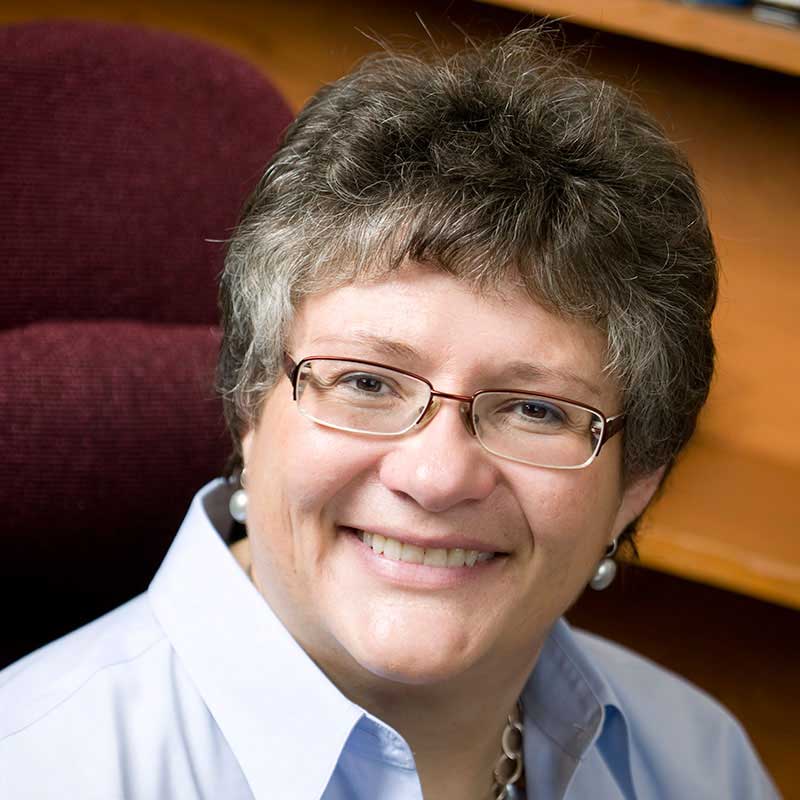Education
Bio
Professor Varas was born in Guayaquil, Ecuador, and has lived and traveled in South & Central America, the Caribbean, Canada and Europe. She received her PhD in Latin American Literature from the University of Toronto and has taught in several universities in Canada: Victoria University, University of Waterloo, and York University. She has published, Narrativa y cultura nacional (1993) and Las máscaras de Delmira Agustini (2003). She has contributed to several published collections, and published many articles on Spanish and Latin American literature. Her research is mainly interdisciplinary in the fields of Latin American women writers, modernity, film and cultural studies. She is currently conducting research on historical memory and the detective novel in Latin America.
Research
Conducts interdisciplinary research that covers the areas of Latin American modernity, literature, film, culture, the detective novel, and women’s writing. At the moment she is conducting research on the detective novel in Latin America and on historical memory in Chilean and Argentinian documentaries and films.
Courses
Latin American Cinema
Latin American Women Writers
Hispanic Civilization
College Colloquium
Topics in Latin American Literature: Latin American Detective Fiction
Spanish Senior Seminar
Senior Thesis in Latin American Studies
Latin American Literature I: Conquest to Independence
Latin American Literature II: Modernismo to the Present
Journal Articles and Book Chapters
“Claudia Piñeiro’s Elena Knows: How Parody in the Crime Novel Explores Disability and Feminism.” In Postmodern Parody in Latin American Literature: The Paradox of Ideological Construction and Deconstruction. Ed. Helene Carol Weldt-Basson. New York: Palgrave MacMillan, 2018. 149-165.
“New Latin American Crime Fiction: Elena sabe by Claudia Piñeiro.” In From Noir to Gris: Spanish and Latin American Women's Crime Fiction in the New Millennium. Eds. Nina Molinaro and Nancy Vosburg. Newcastle upon Tyne: Cambridge Scholars Publishing, 2017. 89-105.
“El neopoliciaco y el espacio liminar de la frontera: Sueños de frontera de Paco Ignacio Taibo II.” In Finisterre: en el último lugar del mundo. Migraciones en la cultura y literatura hispanoamericanas. Ed. Wladimir Chávez Vaca y Leonor Taiano. México: Editorial Destiempos, 2017. 104-122.
“Delmira Agustini.” Entry in Twentieth-Century Literary Criticism. South Carolina: Layman Poupard Publishing, 2016.
“Fears, State Terror, Politics and Suspense in Latin American Cinema: Jorge Fons’s Red Dawn.” In Frightful Witnessing. Eds. Beth A. Kattelman and Magdalena Hodalska. Oxford: Inter-Disciplinary Press, 2014. 115-134.
“Ashes of Izalco: Female Narrative Strategies and the History of a Nation.” In Redefining Latin American Historical Fiction. The Impact of Feminism and Postcolonialism. Ed. Helene Carol Weldt-Basson. New York: Palgrave MacMillan, 2013. 47-64.
“Narrating Trauma: From Testimonio to Memoir: The Case of Rigoberta Menchú.” In The Strangled Cry. The Communication and Experience of Trauma. Eds. Aparajita Nanda and Peter Bray. Oxford: Inter-Disciplinary Press, 2013.161-177.
With Robert Dash: “On How to Tell the Revolution: Alsino y el Cóndor.” In Storytelling in World Cinemas: Narrative Forms and Contexts. Ed. Lina Khatib. Vol. 2. New York: Columbia UP, Wallflower Press, 2013. 50-62.
With Catherine Collins: “Thrilling the Audience, (Dis)tracting the Censors: Suspense as Diversion.” Ed. Phillip Morrissey and Gert Reifarth. Aesopic Voices. Re-framing Truth through Concealed Ways of Presentation in the 20th and 21st Centuries. Cambridge: Cambridge Scholars Publishing, 2011. 210-34.
With Robert Dash: “(Re)imaginando la nación argentina: Lucrecia Martel y La ciénaga.” In El cine argentino de hoy: entre el arte y la política. Ed. Viviana Rangil. Buenos Aires: Editorial Biblos, 2007. 191-207.
Awards
Melon Foundation Liberal Arts Research Collaborative (LARC) for Curriculum Innovation. Redesigning a course: Responding to shifting learner typologies. The development of a Spanish Composition and Discussion course that prepares Heritage Speakers for future research. Co-written with Professors Michael Woods and Ana Montero.
Willamette University Presidential Discretionary Fund 2016-17: “Addressing Our Students’ Needs: Grant to Organize a Workshop on Teaching Spanish Heritage Language Speakers.” Co-written with Professors Michael Woods and Ana Montero.
Melon Foundation Learning by Creating Grant to develop and further integrate visual exercises in my SPAN 331 class and in the service learning component.
Atkinson Research, Willamette University, to conduct research during sabbatical in Buenos Aires, Argentina.

